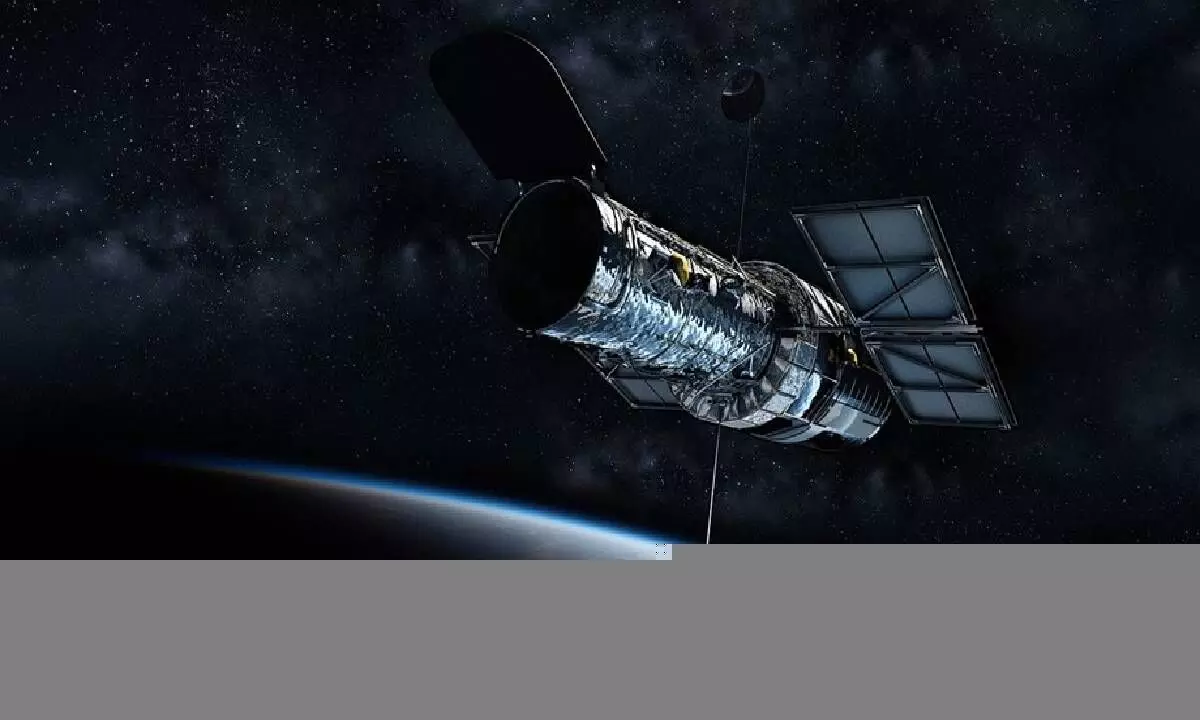Private participation will accelerate Indian space economy with huge investments
Business-wise, it will be $13b by 2025 at a CAGR of 6%: Ernst & Young
image for illustrative purpose

The new space economy is the rising commercialization of space exploration. Private investors, companies, and start-ups are investing and contributing to space exploration.
The Organisation for Economic Co-operation and Development (OECD) defines space economy as the full range of activities and the use of resources that create value and benefits to human beings in the course of exploring, researching, understanding, managing, and utilising space.
Space economy is growing and evolving, together with the development and profound transformation of the space sector and the further integration of space into society and economy. Today, the deployed space infrastructure makes the development of new services possible, which in turn enables new applications in sectors such as meteorology, energy, telecommunications, insurance, transport, maritime, aviation and urban development leading to additional economic and societal benefits. The space sector is not only a growth sector in itself, but it is also the vital enabler of growth in other sectors.
Morgan Stanley’s Space Team estimates that the current $350 billion global space industry could surge to over $one trillion by 2040.
According to Ernst& Young, the space economy in India is set to grow to $13b by 2025 at a CAGR of 6%.
India has a well-developed space program, boosted by the realization of indigenous technology, facilities, systems, and rollout of services in a systematic manner. Opening-up of space economy to private participation has the potential to bridge the digital divide, ushering in innovative spaced-based services and catapulting India to the forefront of the space-tech race.
The satellite services and application market in India will be driven by greater demand for high bandwidth and lower latency data requirements, connect the unconnected with voice and data communication services and increase in IoT and autonomous systems. In addition, an increase in demand for military and defence satellite communication solutions is likely to spur the market forward.
From an end-user industry perspective, media and entertainment may account for 26% of the total services market by 2025, followed by retail and enterprise at 21% and defence at 20%. The remote sensing segment may register one of the highest CAGR through 2025, driven by an increase in resolution of commercially available imagery and adoption of new-age technologies.
For satellite manufacturing, the “Make in India” initiative may spur growth owing to increased demand for small satellites. By 2025, the satellite manufacturing segment will be the second fastest growing in the Indian space economy. Setting-up space parks across the country is likely to give a fillip to companies operating across the space value chain, especially manufacturing. It will be the key to attracting global startups working in the space sector and help to incubate space-tech companies in India.
Several companies are utilising cutting-edge technologies to develop innovative launch solutions in India. They have built considerable expertise around the launch of Low Earth Orbit (LEO), Medium Earth Orbit (MEO) and Geosynchronous Equatorial Orbit (GEO) satellites and orbit management solutions. The launch segment is fast becoming a key focus area for startups and small and medium businesses (SMEs) in India to drive the innovation agenda and to make use of new revenue opportunities.
Currently, India boasts of over 100 space-tech startups with 2021 being the watershed year for them, with investments reaching US$68m, a y-o-y increase of 196%. Nearly 47 new space-tech startups were established in the country in 2021.
Key drivers for investment in Indian space: Commercial satellite telecommunications, in particular, have paved the way for private financing, as the high profitability of satellite services over the past 15 years has allowed operators to benefit from classic financial schemes to develop their activities. Most satellite operators in OECD countries have become publicly traded corporations. They have resorted to project financing, with syndicates of banks providing loans. This successful trend in telecommunications has led to similar results in other space domains.
A relatively new source of private capital comes from large aerospace and defence firms, which have all set up their own VC funds in the past few years. They will invest in startups involved in software development, artificial intelligence, augmented reality, sensors, and autonomous vehicles in particular. Some of the most active players in this segment include Boeing's HorizonX Ventures, Lockheed Martin Ventures, Airbus Ventures, Thales Corporate Ventures and the Dassault System Venture Fund. Agencies and governments, in fact, are changing their position of being only investors of the national markets and are moving toward the role of confidence builder, meaning the creators of initiatives, instruments, business models, and opportunities aiming at facilitating the supply and demand matching among private actors in the space sector.
Taken under any yardstick, it is certain that throwing open the space economy to private participation across all phases of activities will herald an era of growth, innovation, and accelerated investment in the sector.

